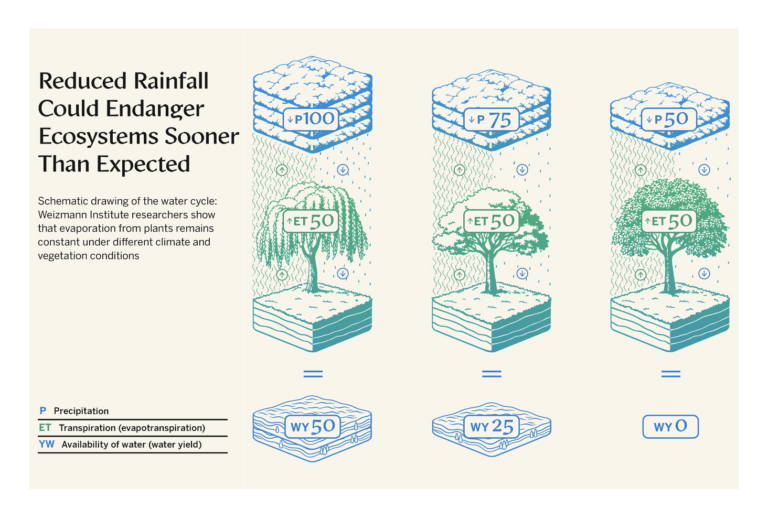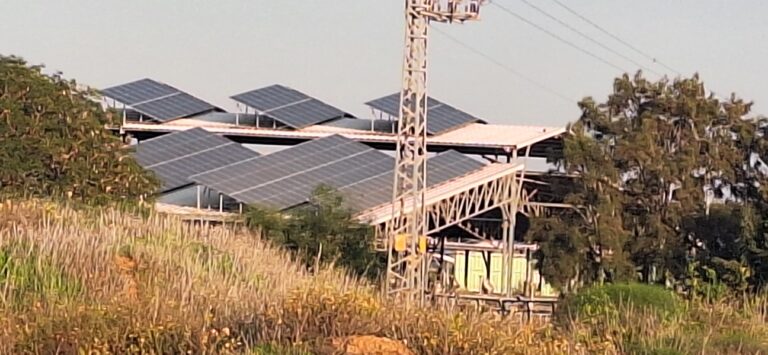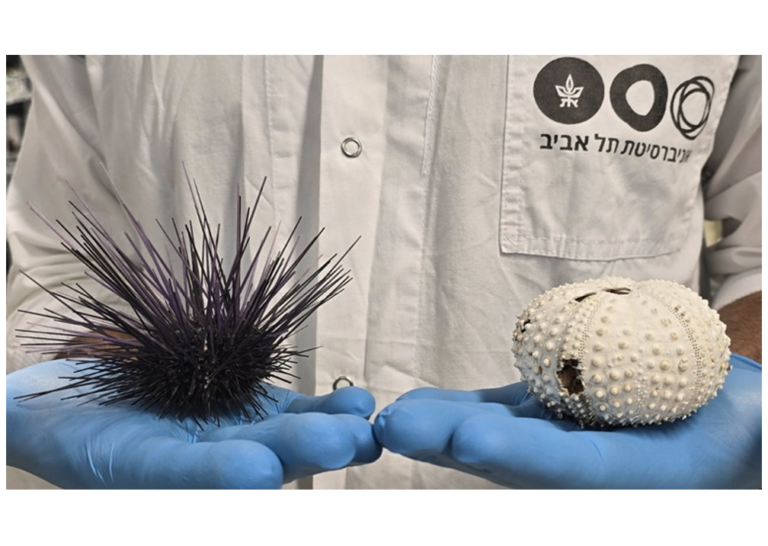Exposition universelle : Israël présente une prouesse environnementale, un champ vertical !

[:fr]A l’Exposition Universelle 2015, le pavillon d’Israël a recueilli un immense succès. Saluée par la presse et le public, cette réussite est due à la présentation d’une innovation aussi audacieuse qu’originale : un “champ vertical” conçu par l’architecte David Knafo.
Article de Roland Smit pour la CCLJ. C’est un champ vert long 70 mètres et haut 12 mètres où l’on cultive des céréales (blé, maïs, riz). Mais ce champ est vertical ! Il s’agit d’une méthode révolutionnaire de culture hors sol inventée pour contrecarrer une pénurie éventuelle de sol arable. Ce champ vertical est divisé en neuf zones et sur chacune d’elles pousseront des cultures différentes avec une très forte réduction de consommation d’eau par rapport aux cultures traditionnelles.
L’autre facteur clé du succès du pavillon naît d’une vidéo montrant notamment l’aide d’Israël au monde. Israël a établi une coopération avec la Chine pour la surveillance des cheptels par informatique afin d’optimiser la production du lait ; avec l’Australie pour le contrôle par satellite d’immenses champs irrigués, où chaque fuite d’eau dans le système d’irrigation est identifiée sans retard ; avec le Sénégal pour le système d’irrigation à gouttes ; avec l’Italie et dans beaucoup d’autres nations pour le développement de la biotechnologie ainsi que l’étude du blé afin de rendre les plantes plus résistantes et améliorer la qualité des produits.
Rencontre avec l’Ambassadeur d’Israël en Italie, SE Naor Gilon :
Expo Milano 2015 est une opportunité pour votre pays de montrer ce qu’il offre de meilleur. Êtes-vous convaincu que cela puisse aider à améliorer globalement l’image d’Israël ?
Naor Gilon : La majorité des personnes dans le monde ne connaissent pas Israël, le vrai Israël. Israël a tellement à offrir au monde de par ses capacités étant un leader mondial dans l’innovation. Nous avons commencé à innover dans le secteur de l’agriculture, car, au départ, Israël était un pays principalement agricole. C’est pour cette raison que pour nous, le thème de l’Expo : “Nourrir la Planète. Énergie pour la Vie” est par définition le point fort de notre nation. Nous pouvons ainsi, dans notre pavillon, montrer l’apport d’Israël au monde entier. Israël est effectivement le leader mondial dans l’innovation, et ce, dans tous les secteurs comme la médecine, l’électronique, l’informatique. Ces secteurs contribuent également à l’agriculture. Israël compte le plus grand nombre de start up per capita au monde. Nous sommes très fiers de montrer nos capacités technologiques en agriculture à l’occasion de cette magnifique manifestation à Milan.
J’ai pu observer un intérêt particulier des visiteurs de l’Expo Milano 2015 pour le pavillon israélien ? Avez-vous préparé le terrain par une campagne de communication ?
N.G. : Nous avons bien sûr préparé les médias, mais je peux affirmer que notre pavillon est non seulement fort attirant, mais encore passionnant et fascinant, car, entre autres, il est le seul à présenter ce champ vertical, il propose aussi un grand vidéo où l’on peut découvrir notre pays non seulement en visionnant le panorama israélien, mais en y faisant un tour où l’on peut découvrir les habitants et leur diversité… Nous sommes parmi les uniques pavillons dans lesquels on traite vraiment les thèmes de l’Expo : “Nourrir la Planète. Énergie pour la Vie”. Nous ne faisons pas de promotion pour le sport israélien, pour la nourriture israélienne… Nous parlons d’alimentation, de technologie, et comment aider le monde à profiter de nos inventions. C’est pour cela qu’il y a un si grand intérêt pour notre pavillon.
Source : cclj[:en]A vertical green field, multimedia installations and the stories of industrious people, cutting-edge technologies and thriving companies that made the desert blossom. At Expo Milano 2015 Israel will present the Fields of Tomorrow. From the creation of the « Super Wheat », the original wheat from biblical times, to the most modern technologies that have made the desert bloom.
This is the Israeli Pavilion at Expo, which welcomes visitors with a spectacular ‘vertical field’ growing wheat, corn and rice. At Expo Milano 2015 Israel presents “Fields of Tomorrow”, a pavilion dedicated to the traditions of the « land flowing with milk and honey » but also to the most advanced sustainable technologies in agriculture and food », Israeli ambassador Naor Gilon explained to Adnkronos.
“The exhibits include a vertical green field, multimedia installations and the stories of an industrious people, cutting-edge technologies and innovative companies but also”, said Gilon “Israel’s commitment to sharing of the know-how and the research results for renewal in the future. »
A young country, but also with a tradition stretching back three thousand years, in less than seventy years Israel has succeeded in transforming a prevalently arid landscape into fertile land and becoming one of the most advanced countries in the field of scientific and technological innovation. The Israeli Pavilion wishes to recount all this. Designed by architect David Knafo and constructed by Avant Video Systems with 100% recyclable materials, it stands alongside the Italian Pavilion at the crossroads between the Cardo and the Decumano, the two main axes of Expo Milano 2015.
A vertical field growing mainly wheat, corn and rice welcomes the visitors. Inspired by real crops, the green wall does not play a merely aesthetic role but introduces Vertical Planting, a revolutionary technology that allows saving and optimization of land and water. The route of the visit reveals cutting-edge technologies, exhibits sustainable projects and relates the life of the Israeli people.
In the entrance lobby, actors and performers interact with the public while videos are projected on the walls. The first part of the exhibit relates the story and the lives of three generations of farmers who have succeeded in making the desert bloom.
One section of the exhibit is dedicated to the KKL-JNF Forest. With 240 million trees planted in the last seventy years, the Keren Kayemeth LeIsrael – Jewish National Fund is reforesting the landscape of Israel. The KKL-JNF offers new chances to ecosystems at risk, creating a seed bank, developing botanical nurseries and planting trees. Thanks to the donations from Israel and from around the world, the KKL-JNF also develops social and environmental projects throughout Israel. Israel is the only country in the world that has more trees today than it did a century ago.
The visitors are then guided to a large darkened room in which lights project into the sky a virtual field and films dedicated to four cutting-edge projects. Biotechnology: the re-creation of the Super Wheat, the original and not genetically mutated wheat of biblical times, that grew three thousand years ago.
There are three other agricultural projects exhibited: the application of digital and satellite technologies to management of the fields, an innovative irrigation project in Africa and the most advanced livestock technologies in an industrial milking center in Asia.
The Pavilion has an outdoor rest area, with a restaurant that offers hummus, falafel, salads and other recipes from Israeli cuisine. On the first floor of the building a panoramic terrace offers a view from the top of the Expo while an events area hosts conferences, exhibits and parties. A green area with trees, benches and a cobbled path leads back to the entrance, running along the vertical field.
Source kkl.org[:]







